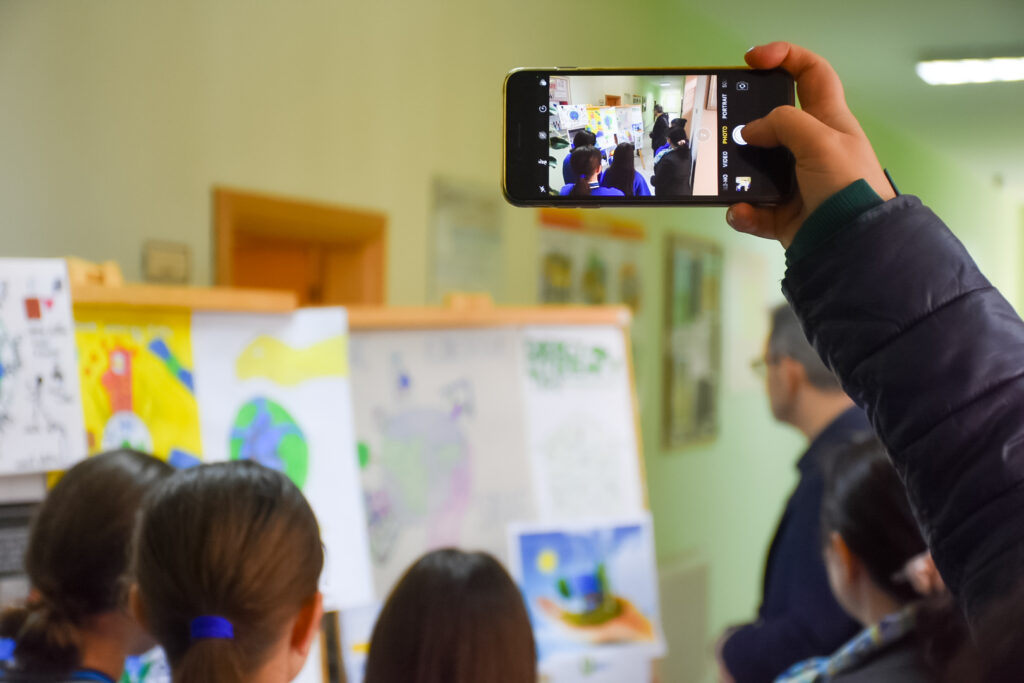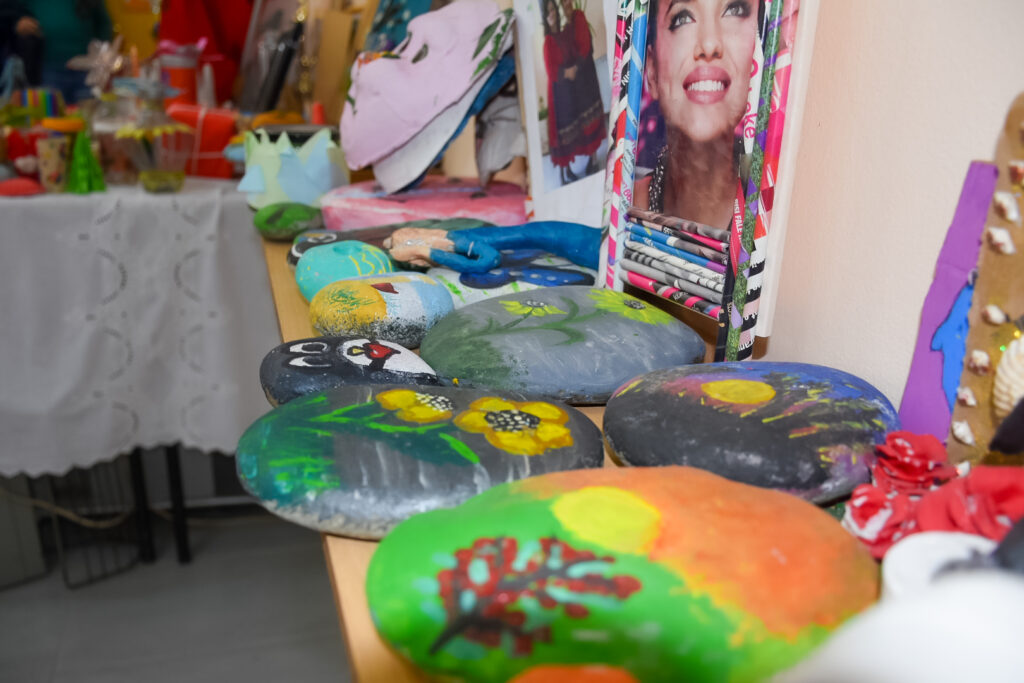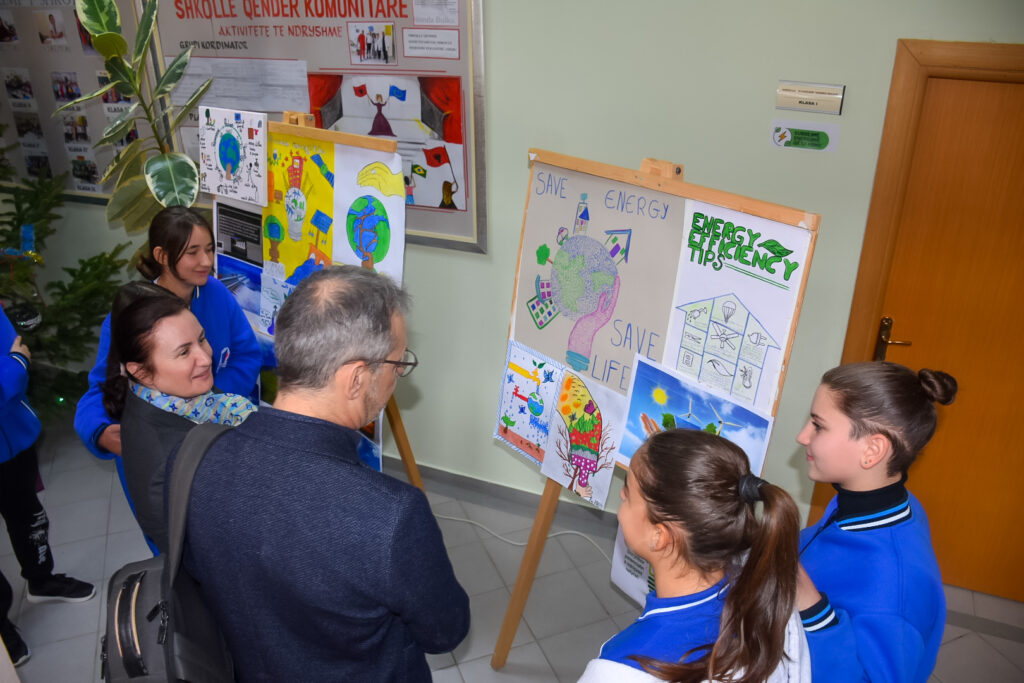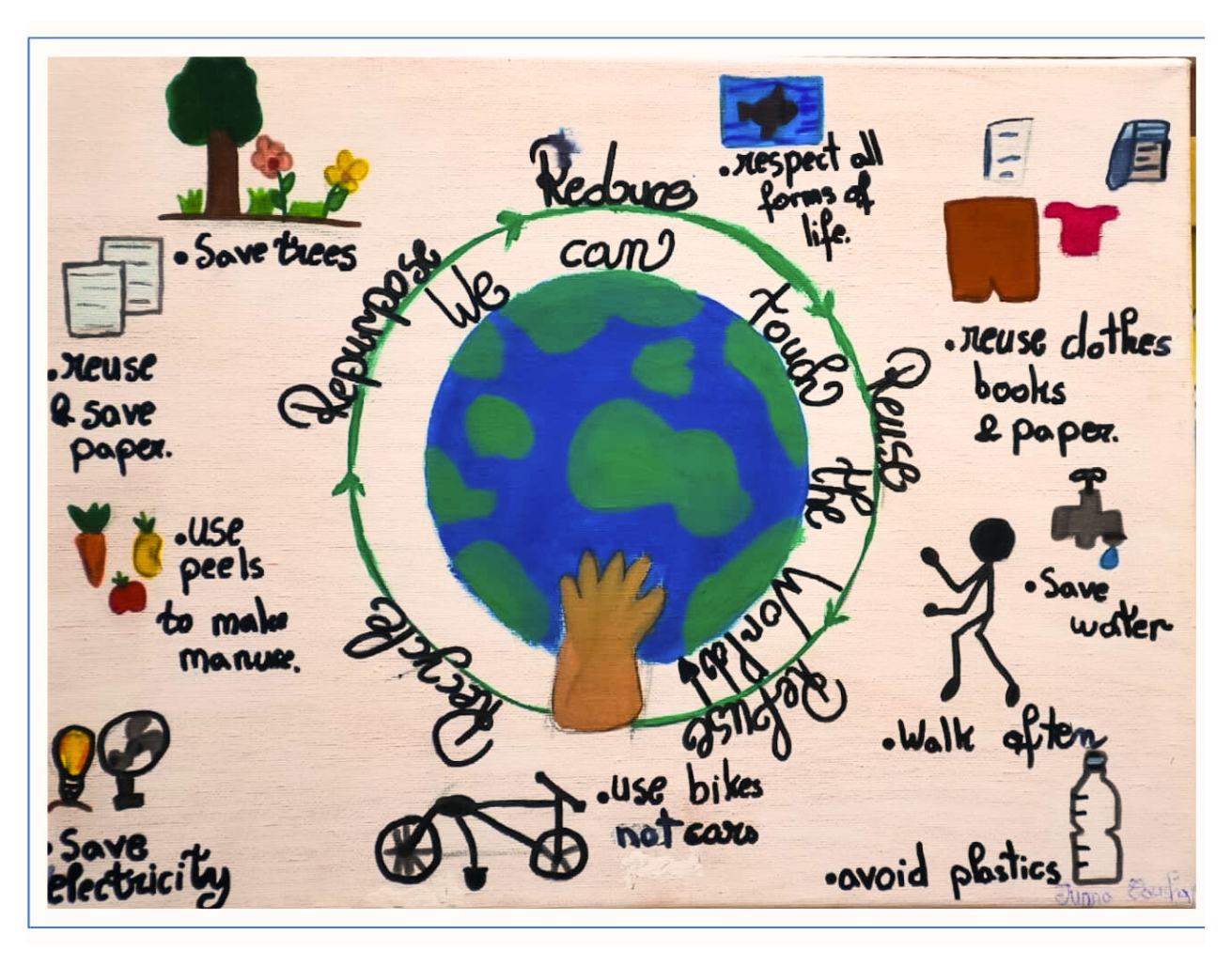Empowering Teachers and Children in Sustainability
Behaviour change is difficult when being older. The easiest way is to start with education at school and kindergartens. Often we see, that children have a severe impact on changing behaviour patterns in their families, especially when it comes to environmentally friendly behaviour. To meet this need, the Institute for Change and Leadership in Albania, who is accredited at the National Trainings and Qualifications Agency at the Ministry of Education, organized a comprehensive training program for teachers titled “SDGs and Critical Issues” within the frame of the SEMP project. This accredited course focused on energy efficiency, climate change, and environmental protection. The program aimed to equip teachers with the knowledge and skills necessary to foster sustainable practices within their educational communities.
A Holistic Approach to Teacher Training
The training module was designed to blend theoretical knowledge with practical application. It comprised 18 hours of instruction, split between online presentations and hands-on exercises conducted in schools. 49 teachers and educators from the four SEMP-municipalities—Korca, Shkodra, Permet, and Berat—participated, representing 11 schools and 2 kindergartens. This diverse group of educators engaged in activities that ranged from classroom lessons on energy efficiency to creative projects utilizing recyclable materials and used the opportunity to network amongst each other.
Engaging students through practical activities
One of the standout aspects of the training was the emphasis on practical exercises tailored to various age groups. Teachers organized art and craft sessions using reusable products, led discussions on energy conservation, and facilitated projects like the creation of sustainable energy models. For instance, at Nonda Bulka School in Permet, students produced artworks reflecting their understanding of energy efficiency and climate change. Similarly, in Shkodra, 8th-grade students built solar panels from old CDs, learning about renewable energy in a hands-on manner.



Building capacity and awareness amongst educators and their students
The training significantly enhanced the participating teachers’ capacity to integrate sustainability into their teaching. The comprehensive understanding gained about energy efficiency and climate action was evident in the increased student engagement during practical activities. Teachers reported high levels of interest among students, which translated into a broader awareness of sustainable practices within the community. The materials provided during the training, such as PPT presentations, articles, and visual aids, served as valuable resources for ongoing education.
Flexible and tailored training
Flexibility was a key feature of the training program. Given the busy schedules of teachers, the organizers offered multiple sessions and allowed participants to choose the most convenient times. This approach ensured high participation and engagement. Additionally, the training activities were customized to address the specific needs and contexts of different schools, enhancing the relevance and effectiveness of the sessions.
The “SDGs and Critical Issues” training program exemplifies how targeted educational initiatives can empower teachers to drive change within their communities. By equipping educators with the necessary tools and knowledge, this program has not only enhanced the teachers’ capabilities but also inspired a new generation of students to take action towards a sustainable future. The success of this training underscores the importance of integrating sustainability into education and highlights the vital role teachers play in promoting environmental stewardship.



